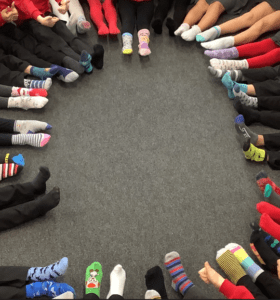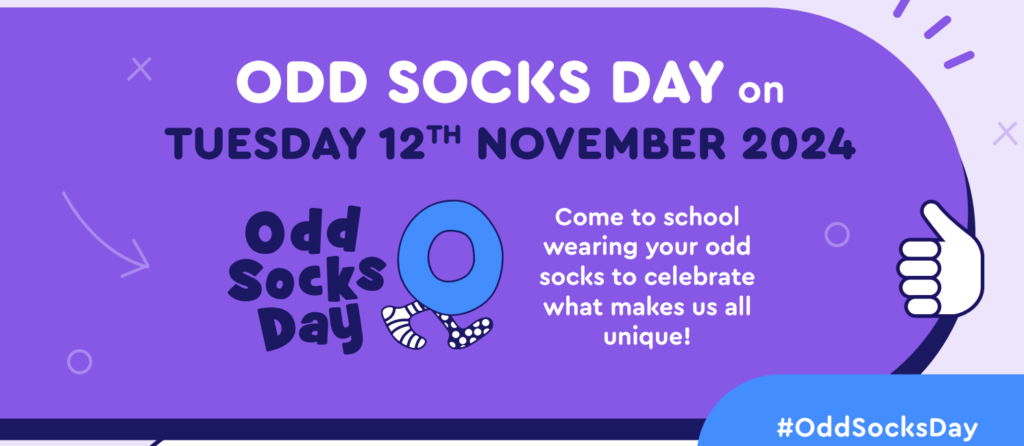Me and my community week!
This week has been all about me and my community!
We have been learning about what a community is and what communities we are a part of.
A community is a group of people who have things in common. This might be similar interests, neighbourhoods or religions. Communities help us to make new friends, learn new things and share ideas.
We’ve had some visitors to help us learn about different communities.
The Visually Impaired community talked about how people with visual impairments experience life and what we can do to help them.
Grandad’s Wheels came in to talk to us about a community that have spinal injuries or who need wheelchairs. He has written books about him and his grandson to help raise money for those who need it. We designed him a new, out of this world wheelchair! Have a look at what we did…
We also learnt how to support people who are deaf and how we can use British Sign Language to communicate.
We’ve also learnt about identities and what makes up our identity. This can include our interests and families. Everyone’s family and identity is different and that makes us special!
We finished of the week with ‘Identity Day’ where we dressed up in clothes that represent us or part of our identity. This could be a club we go to, a religion or a culture.
We linked our identities to our British Values and Protected Characteristics. To ensure that everyone is feeling happy and healthy, we must be respectful and kind to others.
Help at home by listing how many communities you and your family are a part of. What do you have in common with the people in your communities? How are you different to others in your communities?
Term 1.2 – Group reading!
Hello!
This week, we are beginning group reading!
The class have been divided into groups and each group has been given a book to read at home. This will last for this half term.
During our Book Club sessions each Friday, each group will discuss what they have read so far and share their reading record activities related to their book. This will be a fantastic opportunity for the children to explore characters and storylines more than they might do normally!
Every Friday during Book Club, each group will be given a new page to read to for the next Friday.
What to remember:
- Your child has a book that they need to read every week (up to a chosen point marked with a post-it notes).
- The reading record activity needs to be completed using their new book.
- A comment from a grown up needs to be written in their reading record.
- Group reading books and reading records need to be brought in every Friday.
Help at home by listening to your child read their new book and ask questions about the book to help prepare them for class discussions.
I look forward to hearing the children’s discussions next week!
Thank you!
Anti-bullying day and Odd socks day



Pumpkin picking
One of the community links for our Me and my community themed week, MHA Moor Allerton, are holding an open day next Tuesday 29 October 2pm to 4pm with pumpkin picking from their own pumpkin patch, refreshments and activities.
Living and Learning: New school charity
Every year, we vote for a new school charity to support.
Our new charity will replace our current school charity The Children’s Heart Fund. Thank you for all the donations and support given to this great, local cause, including £180 for our recent Rob Burrow Connect Challenge.
As part of our Me and my community themed week, children will be considering the following shortlist of charities. Children should start thinking about these charities and be ready to share their views.
Action Against Hunger aim to save the lives of vulnerable people affected by hunger. Action Against Hunger fights hunger and malnutrition around the world, because no child should ever suffer or die from it. Stop hunger today.
No child should live in poverty. All children should have their basic needs met so that they can achieve their full potential in life. Give every head a bed.
Each class will vote for one charity which will be brought to the Junior Leadership Team who will have the final vote on Thursday 07 November.
Performance Poetry
This week, we’re reading this poem by Nick Toczek – a Yorkshire born poet.
We watched Nick Toczek perform it here: https://www.bbc.co.uk/bitesize/topics/zxwqtfr/watch/z7w42hv
We had a think about what made his performance so good! These are the R2s (remember to) that we took from him:
- read with prosody
- add actions
- change tone of voice
- change volume of voice
- involve the audience
- well-rehearsed
We then used these R2s to do our performances! We worked in small groups to add actions, rehearse and practise reading with prosody. The performances were fantastic with some even memorising the words after 20 minutes!
Help at home by reading this poem at home and performing to each other! Can you use all the R2s?
Leeds School Sports Association cross country race 1
On Saturday, some of our key stage 2 children took part in the first of the Leeds Schools Sports Association Saturday morning cross country races. Over 100 children, from Leeds primary schools, compete in each of the Year 3-Year 6 girls and boys races.
A special mention to Ewan (Year 4) who finished in 5th place and Isla (Year 3) who finished in 13th place.
Thank you to the parents who supported and took their children to this event.
There are three more races coming up this year (see below) and details will be sent out for each race nearer the time if your child would like to get involved.

It’s nearly time to elect our new junior leaders
We have recently launched this year’s Junior Leadership Team election process. Our Junior Leadership Team is one of the ways that children are encouraged to take an active part in pupil voice.
The election process allows children to develop an understanding of one of the British Values, democracy, with two representatives from each class, chosen democratically by their peers.
Here are some of the qualities our junior leaders think are needed to be an effective JLT member.
- use the 8Rs for learning
- be respectful and polite
- help others
- be a good speaker and listener (to members of your class and in the meetings)
- share and be confident with your ideas
- let others speak
- accept the views of others even if you don’t agree
- be friendly and approachable
- follow our school rules and make good choices in class and around school
This weeks’ whole school homework is all about the election and democracy, ready for the elections on Thursday 24 October. For children who want to stand in the election, they will have the chance to share their speeches in class on Wednesday or Thursday this week.
Well done to all our current junior leaders who have represented their class so well this year. Remember, you can stand again in the election.
Maths – number fluency
Year 3 have been learning about numbers to 1,000. We’ve learnt about 3 digit numbers, how to read them, partition and manipulate them!
We’re moving onto our addition journey now and to help your child feel confident in using methods like column addition, they need to be secure with these facts.
These number facts are beyond 10 and there are lots of different strategies to work them out.
For example:
6 + 5
If I know 5 + 5 is 10, 1 more is 11.
Or
If I know 6 + 6 is 12, 1 less is 11.
9 + 4
If I know 9 + 1 is 10, 3 more is 13.
Help at home by practising these numbers facts colour by colour as these will really help when we come to addition with 3 digit numbers!
After-school clubs
Our autumn term clubs continue after half term and there is an opportunity to join the below after school clubs which currently have available places:
Monday
Hama Bead Club – Y4, Y5, Y6
Mindfulness & Yoga – Y3, Y4, Y5, Y6
Tuesday
Skipping – Y3, Y4, Y5, Y6
Sewing & weaving – Y4, Y5, Y6
Wednesday
Skipping – Y1, Y2, Y3, Y4
Girls Football – Y4, Y5, Y6
Thursday
Dazl Dance – Y1, Y2, Y3, Y4
Basketball – KS1
Basketball – KS2
Clubs run straight after school and finish at 4.15pm.
All clubs will run until w/c 9 December, which would give your child 6 sessions if they’d like to join.
If your child is interested in joining any of the above clubs, please reply to the email sent and an individual payment request will be set up.



















